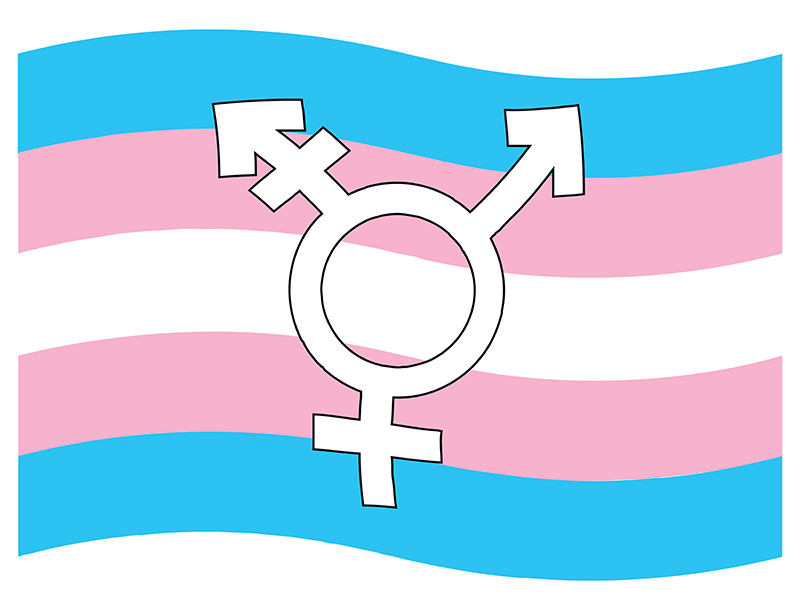Federal court denies transgender man’s request for legal name change
7th Circuit dismisses lawsuit, but fails to resolve issues of transgender rights and immigration status at heart of case

A federal appeals court has denied a transgender man’s request to legally change his name, saying he cannot move forward with his lawsuit because he is not a U.S. citizen, reports The Indiana Lawyer.
The 7th Circuit Court of Appeals ruled on Friday that Indiana resident “John Doe” could not challenge a 2010 Indiana state law requiring proof of citizenship for a legal name change. Doe has argued that the law is unconstitutional, and violates his right to free speech, equal protection, and due process.
John Doe was born in Mexico but raised in Indiana since he was six years old. He has lived his entire adult life as a man and is recognized as a male on all official U.S. documents and his Indiana state ID. But the law prohibits him from changing his legal name without providing proof of legal citizenship.
“I want to use a name that is in line with my true identity,” John Doe said in a statement released in 2016 when he filed the lawsuit. “Without a legal name change, I am forced to use an I.D. that is inconsistent with who I am and puts me in danger of harassment, violence, and being outed as transgender whenever I present it. I am simply asking for equal treatment under the law.”
Doe sued in court, but the U.S. District Court for the Southern District of Indiana dismissed the lawsuit for lack of standing last year. Doe then appealed his case to the 7th Circuit.
In its decision the 7th Circuit said that the claims lodged against Indiana officials, including Gov. Eric Holcomb — who succeeded former Gov. Mike Pence — Attorney General Curtis Hill, Mary Willis, executive director of the Indiana Supreme Court Office of Judicial Administration, and Myla Eldridge, the Marion County Clerk, were not significant enough to constitute “injury.”
For example, since Eldridge only processes name changes in her current capacity, she technically doesn’t hold any power to deny or confirm name changes.
“[E]ven if a plaintiff could otherwise establish that he has standing to sue a state or state official, the Eleventh Amendment generally immunizes those defendants from suit in federal court,” Circuit Judge Michael Kanne wrote for the court. “A plaintiff can avoid this bar, however, by naming a state official who has ‘some connection with the enforcement’ of an allegedly unconstitutional state statute for the purpose of enjoining that enforcement. … That is, a plaintiff must show that the named state official plays some role in enforcing the statute in order to avoid the Eleventh Amendment.
“Doe has not shown that any of the named state officials are connected with the enforcement of the name‐change statute, so the Eleventh Amendment bars his suit against them.”
But Chief Judge Diane Wood, who penned the dissenting opinion in the case, criticized the majority for giving “insufficient weight to the significant roles” played by the various state and county officials sued by Doe, particularly the Attorney General.
She noted that if plaintiffs were never allowed to sue in federal courts for matters typically under the purview of state courts, then a state could, hypothetically, refuse to allow a name change for an African-American who marries a Caucasian, in violation of Loving v. Virginia, or pass a statute refusing to allow a single surname for a same-sex couple, in violation of Obergefell v. Hodges.
“In the end, I believe that the majority has attached too much importance to the fact that the state courts are the ones charged with the duty of issuing name‐change orders,” Wood wrote. “The fact that this responsibility is lodged in the courts does not mean that Doe’s suit is nonjusticiable.”
Transgender Law Center, which represented Doe, said their client disagreed with the 7th Circuit’s opinion and was “considering all of his options” going forward.
“The decision says nothing about the rights and issues at the heart of this case,” Shawn Thomas Meerkamper, a lawyer from Transgender Law Center, told Newsweek. “…Everyone should be able to live as their authentic selves no matter their gender identity or immigration status, and today’s decision will not deter Mr. Doe and thousands of others fighting to be recognized for who they are.”
Support Metro Weekly’s Journalism
These are challenging times for news organizations. And yet it’s crucial we stay active and provide vital resources and information to both our local readers and the world. So won’t you please take a moment and consider supporting Metro Weekly with a membership? For as little as $5 a month, you can help ensure Metro Weekly magazine and MetroWeekly.com remain free, viable resources as we provide the best, most diverse, culturally-resonant LGBTQ coverage in both the D.C. region and around the world. Memberships come with exclusive perks and discounts, your own personal digital delivery of each week’s magazine (and an archive), access to our Member's Lounge when it launches this fall, and exclusive members-only items like Metro Weekly Membership Mugs and Tote Bags! Check out all our membership levels here and please join us today!



























You must be logged in to post a comment.